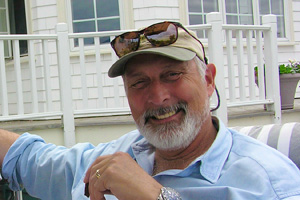 |
| home about board of directors donate publications order form links/data contact |
|
Oliver S. Dominick |
|
Oliver was born in 1950, the first of Richard B. Dominick's two children. (R.B.D. as he often referred to himself; had just finished medical school.) Oliver's childhood included several years on a historic family farm in Westchester County, NY, catching frogs and insects for fun and chickens for dinner. Early schooling was in New York City, followed by boarding school (age 12) in the far more appealing countryside of Massachusetts, college at Stanford University, and a PhD in 1981at University of Washington. Fascination with the natural world was early, immersive and consistent: summers with Dad in a remote wilderness camp at Nictau, New Brunswick and school weekends filled with the duck-rich marshes of Long Island, NY. In NYC Dad took the young Oliver on fascinating hospital rounds and so frequently to the American Museum of Natural History and the Explorers Club that it seemed that the whole world was an exhilarating swirl of animal diversity and natural wonder all interwoven with energetic characters filled with curiosity and adventure. A pinnacle of childhood exposure to the natural world was a 1960 safari trip to Kenya in (age 9). Hunting gazelle in the vast Serengeti studded with dramatic flat-topped thorn acacias, sleeping on the dry ground of the Ouasi Nyiro with dried elephant dung for a pillow, climbing a tree to stay out of the way of elephants in camp, peering over the plunging escarpment of the Rift Valley, the grand colonial imagery of Nairobi's "New" Stanley Hotel……these are a few paltry images from an endless canvas of natural romance. In Oliver's early teens Dad retired from ophthalmology and moved the family to The Wedge Plantation in McClellanville, SC. The Wedge was an enthralling piece of heaven in the tidal low-country, encompassing seemingly endless forests of loblolly pine, live oak, marshes (formerly rice fields) and miles of sandy trail/roads for horseback riding, hiking, and access to indescribable natural treats. Dad and his wife Tania restored the plantation and its magnificent ante-bellum house to perfection. The combined families (Dad's two children plus Tania's four) were extraordinarily stimulated, challenged and happy. At The Wedge Dad re-engaged his childhood interest in collecting moths, which soon led to MONA and WERF (for more on this see R.B.D.'s 1970 introduction to The Moths of America North of Mexico, "Concerning the origins of this enterprise and the people engaged in its execution"). Such early exposures led Oliver to enduring involvements in physiology, ecology, conservation, and animal behavior. These gradually evolved into attention to the emergence of "complex" properties in systems biological, ecological, economic, and otherwise. Oliver has worked for substantial periods on hormone and nervous system physiology, molecular biology, education, conservation, and business ventures including biotech consulting, oil exploration, bankruptcy investing, farming and even residential design and construction. At Stanford University (BA, MA) Oliver focused on marine biology and physiological ecology as well as mountain lion conservation. In 1975 he moved to Seattle to pursue a Ph.D with J. W. Truman, using Manduca sexta to examine how steroid hormones mediate behavioral changes at the level of the nervous system, pioneering an in vitro preparation of the fully isolated central nervous system which is still in use. Subsequently Oliver worked at Cornell University in the Entomology Department with additional involvement in biochemistry, genetics, neurobiology and biotechnology. His focus moved from hormonal control of mosquito behavior to behavioral genetics, and ultimately to some of the earliest attempts (in 1983) to transform eukaryotic genes using embryonic injection of transposable elements in mosquitoes in the effort to mediate with malaria. His background in molecular biology eventually led to opportunities to consult in biotechnology to investment groups in New York City, and ultimately to transition from pure research to the business world. He's since been involved in a variety of startups and consulting situations. Oliver's family includes his wife, Deede, her three grown children (and five grandchildren), his own nine siblings, and innumerable nephews, nieces, and godchildren. His move to Maine in 1999 reflects the priority that conservation and outdoor education have assumed. He and Deede are presently involved include the Nature Conservancy's activities in Africa and in the Gulf of Maine. |
© 2004-2022 Wedge Entomological Research Foundation
